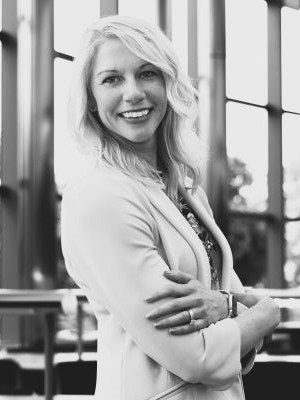
Jillian Woodworth
OCCUPATIONAL THERAPY
Graduated in 2011
Clinical Assistant Professor
University of Michigan-Flint
Q: Why did you choose WSU?
A: I chose Wayne State University because of its reputable Occupational Therapy program, its proximity and relationships with the Rehabilitation Institute of Michigan and Children's Hospital of Michigan for clinical opportunities, and because it is in the heart of my favorite city in the world — Detroit!
Q: What inspired you to pursue occupational therapy?
A: I have always worked with children and individuals with developmental disabilities in some capacity my entire life. When I was introduced to occupational therapy as a profession to enhance meaningful activities in the lives of populations I deeply cared about, it just clicked for me! I am so passionate about our profession and how we impact the lives of others.
Q: Who was your most memorable instructor?
A: I was blessed with many compassionate, intelligent instructors over the course of my academic career at Wayne State. I will always remember Dr. Doreen Head's passion for mental health and teaching us how to run efficient treatments in a group setting, which has served me well in my clinical career. I was so grateful for Dr. Regina Parnell, who I completed my first research study with at the Coalition on Temporary Shelter, providing activities for children that resided at the shelter each week. I will also always remember Dr. Rosanne DiZazzo-Miller as the instructor who encouraged me to go back and pursue my doctorate after graduation. I am forever thankful to her for recognizing the potential to take my career further.
Q: What was your most challenging class?
A: Anatomy and Physiology with Dr. Mary Tracy-Bee. What a phenomenal instructor! I was an adult learner returning to graduate school after a five-year hiatus, so getting back into the routine of studying every day was a challenge the first few weeks. Dr. Bee was patient with me and provided me with extra materials. I had an awesome study group of friends I learned from, and I'm happy to say that after I got into the swing of things with that first semester it was smooth sailing from there!
Q: Where was your favorite place to study?
A: There was a group of seven of us who studied together. We would rotate study groups at each of our homes each week from the first semester anatomy class all the way through studying for our board exam after graduation. We were there for one another and are still really close today!
Q: Tell us about your time on campus.
A: I couldn't have asked for a better two and a half years. I had wonderful mentors, met lifelong friends, and was provided opportunities educationally and experientially that allowed me to grow as a clinician.
Q: Tell us a bit about your career.
A: In 2016, I moved from downtown Detroit to the Flint area when I received an opportunity to participate in the program development aiding in the treatment of children ages 0-5 impacted by the Flint Water Crisis. I was so lucky to work with a dedicated team of educators and therapists to create and implement a sustainable program for children and their families in this public health catastrophe. The program has created a positive impact on improving the health, well-being, and participation in life through engagement in occupation, early intervention, and providing families with the strategies/resources they required.
An occupational therapist helps patients engage in everyday activities that are important to them, using a variety of productive and creative activities. Learn more about the WSU Applebaum Occupational Therapy program by attending a college information meeting, held for prospective students at 6 p.m. on the first Tuesday of each month.
An anchor in urban health care
The Eugene Applebaum College of Pharmacy and Health Sciences is built on more than 100 years of tradition and innovation in the heart of Detroit. We have grown deep roots in our city, harnessing its powerhouse hospital systems and community service organizations as vibrant, real-world training grounds for students, with an ongoing focus on social justice in health care. And our research at all levels – from undergraduates to veteran faculty members – translates into creative solutions for healthier communities.
Wayne State University is a premier urban research institution offering approximately 350 academic programs through 13 schools and colleges to nearly 24,000 students.